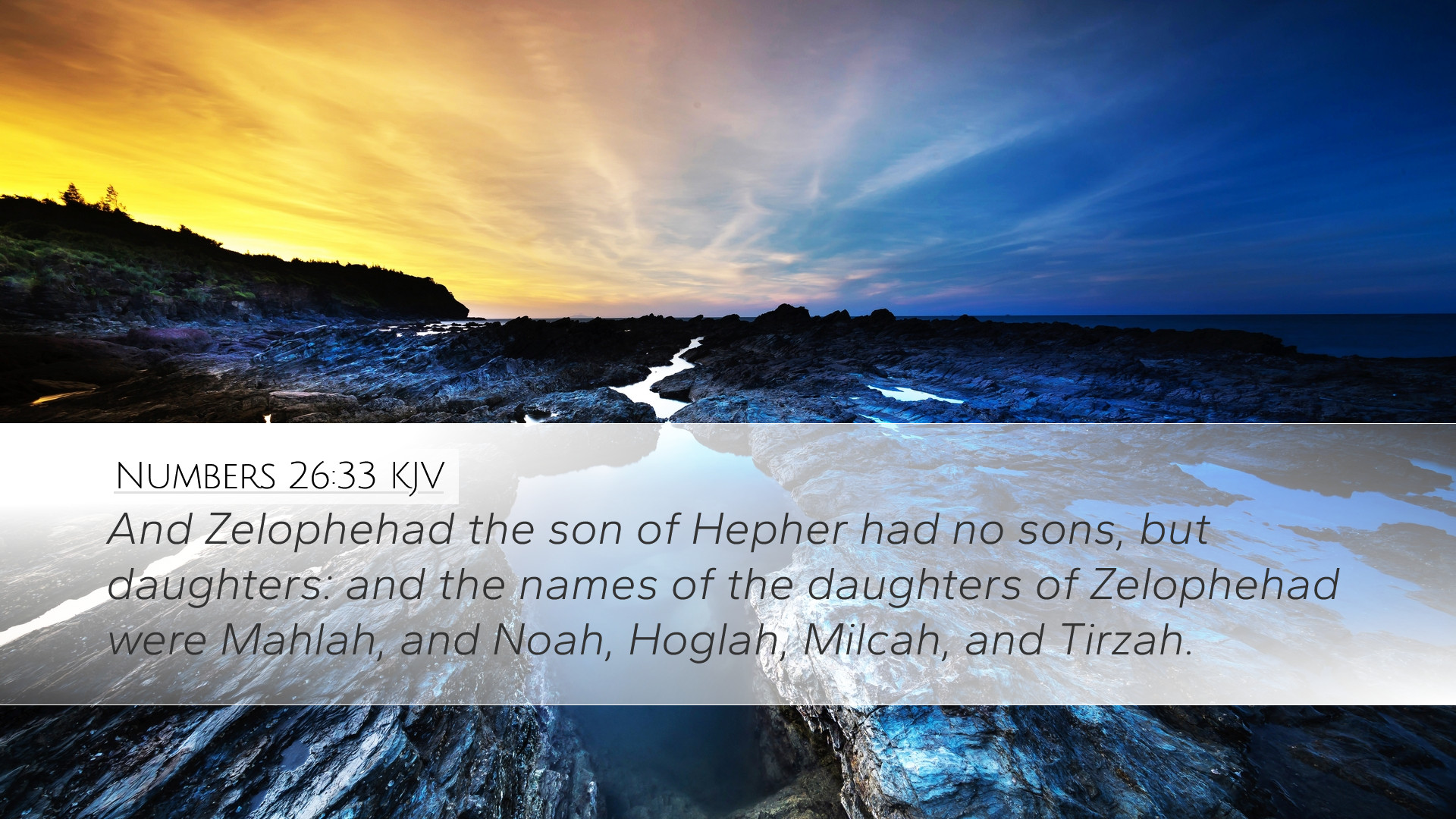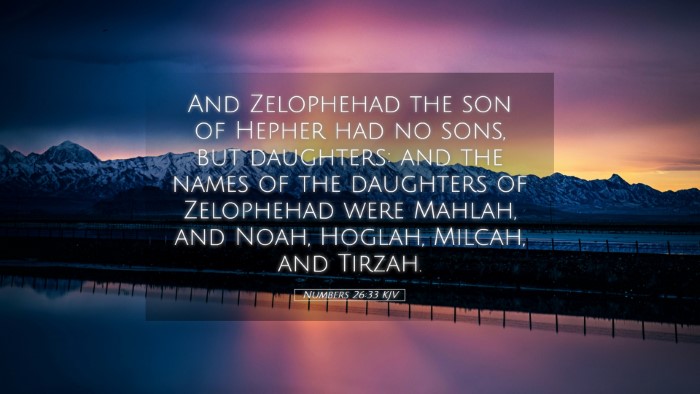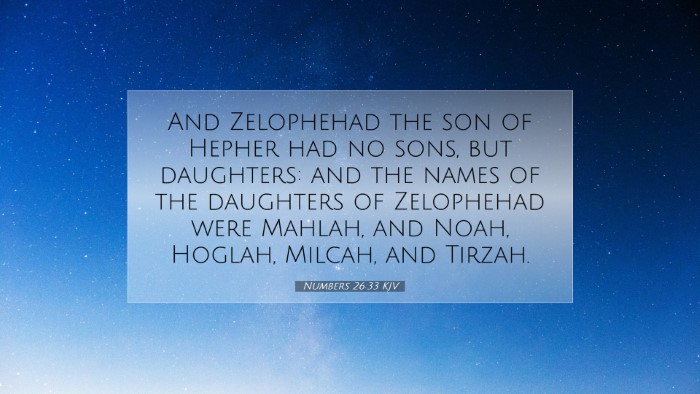Bible Commentary on Numbers 26:33
Numbers 26:33 reads:
"And Zelophehad, the son of Hepher, had no sons, but daughters: and the names of the daughters of Zelophehad are these, Mahlah, Noah, Hoglah, Milcah, and Tirzah."
Introduction
This verse is a pivotal moment in the narrative of the Israelites wandering in the wilderness. It highlights the importance of family lineage, inheritance rights, and God's providential care for both men and women in Israel. In examining this passage, we will glean insights from several public domain commentaries to deepen our understanding.
The Context of Numbers 26
In Numbers 26, the Lord commands Moses to take a census of the Israelites. This census serves not only to count the people but also to allocate land among the tribes. As a deeper implication, it reflects God's faithfulness to His covenant promises.
Matthew Henry’s Perspective
Matthew Henry emphasizes the importance of the daughters of Zelophehad as an example of how God’s law was meant to include women in inheritance— a radical departure from the patriarchal norms of the time. He asserts:
"This is also a token of the divine favor: that daughters should inherit an estate in the land of Canaan."
Henry points out that the mention of Zelophehad’s daughters illustrates the mercy of God in ensuring that no branch of a family was excluded from ownership in the Promised Land due to the absence of male heirs.
Albert Barnes’ Insights
Albert Barnes provides a historical and theological analysis of the verse. He notes that:
"This account shows the exactness and care that God takes in recording the families and the distributions among them."
Barnes argues that the inclusion of women in the lineage demonstrates a broader understanding of family legacy, which transcends cultural expectations of inheritance. He highlights that this underscores a divine order where all individuals matter, thereby uplifting the societal role of women.
Adam Clarke’s Commentary
Adam Clarke offers a detailed exposition on the names of the daughters, noting the significance of each:
- Mahlah: meaning "sickness," suggests a historical context of struggle.
- Noah: meaning "motion," reflects the dynamism of faith and inheritance.
- Hoglah: meaning "partridge," symbolizes both resourcefulness and resilience.
- Milcah: meaning "queen," emphasizes nobility and the dignity of women in God's plan.
- Tirzah: meaning "delight," illustrates joy and the hope of God's promises.
Clarke asserts that each name carries theological implications that highlight God’s involvement in their lives and societies at large.
Theological Implications
Numbers 26:33 invites deeper theological reflection on God’s justice and the nature of His covenant. Scholars universally agree that the inclusion of daughters in inheritance showcases:
- Divine Justice: The text affirms that inheritance and God’s blessings are not limited to male descendants.
- God's Care for the Marginalized: These women represent those often overlooked in historical accounts.
- The Nature of God’s Covenant: God's promises extend beyond human limitations and societal constructs.
Application for Today
This passage challenges contemporary believers to align with God's inclusive and redemptive vision. Pastors and theologians can reflect on:
- The call to recognize and advocate for the roles women play in the Church today.
- The importance of ensuring that all members of the community—regardless of gender—are given a voice and a place in the Kingdom of God.
- How God’s initial intentions for equity are seen in the modern Church and how they can be realized in practice.
Conclusion
Numbers 26:33 serves as a profound witness to God’s faithfulness, justice, and inclusivity. As pastors, students, theologians, and Bible scholars reflect upon this verse, it becomes clear that God's intricate concern for individuals, regardless of societal standards, is both a challenge and an encouragement to the Church today.


